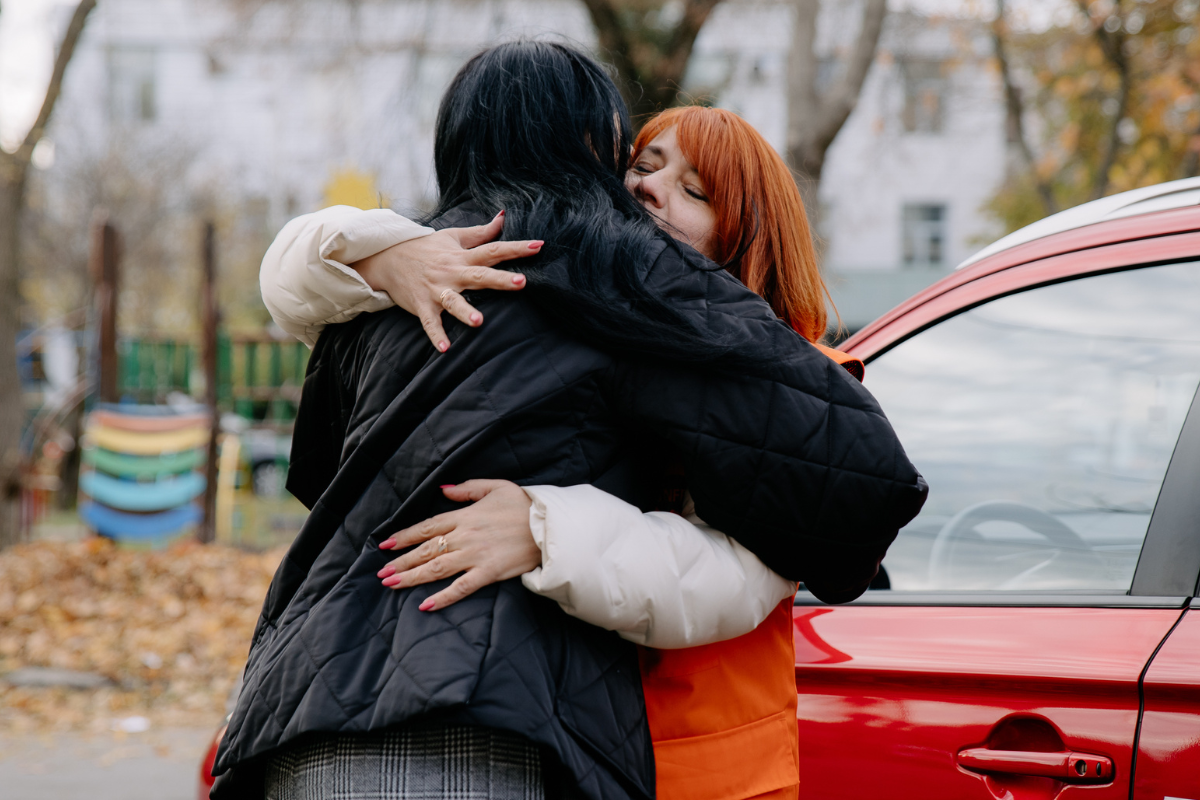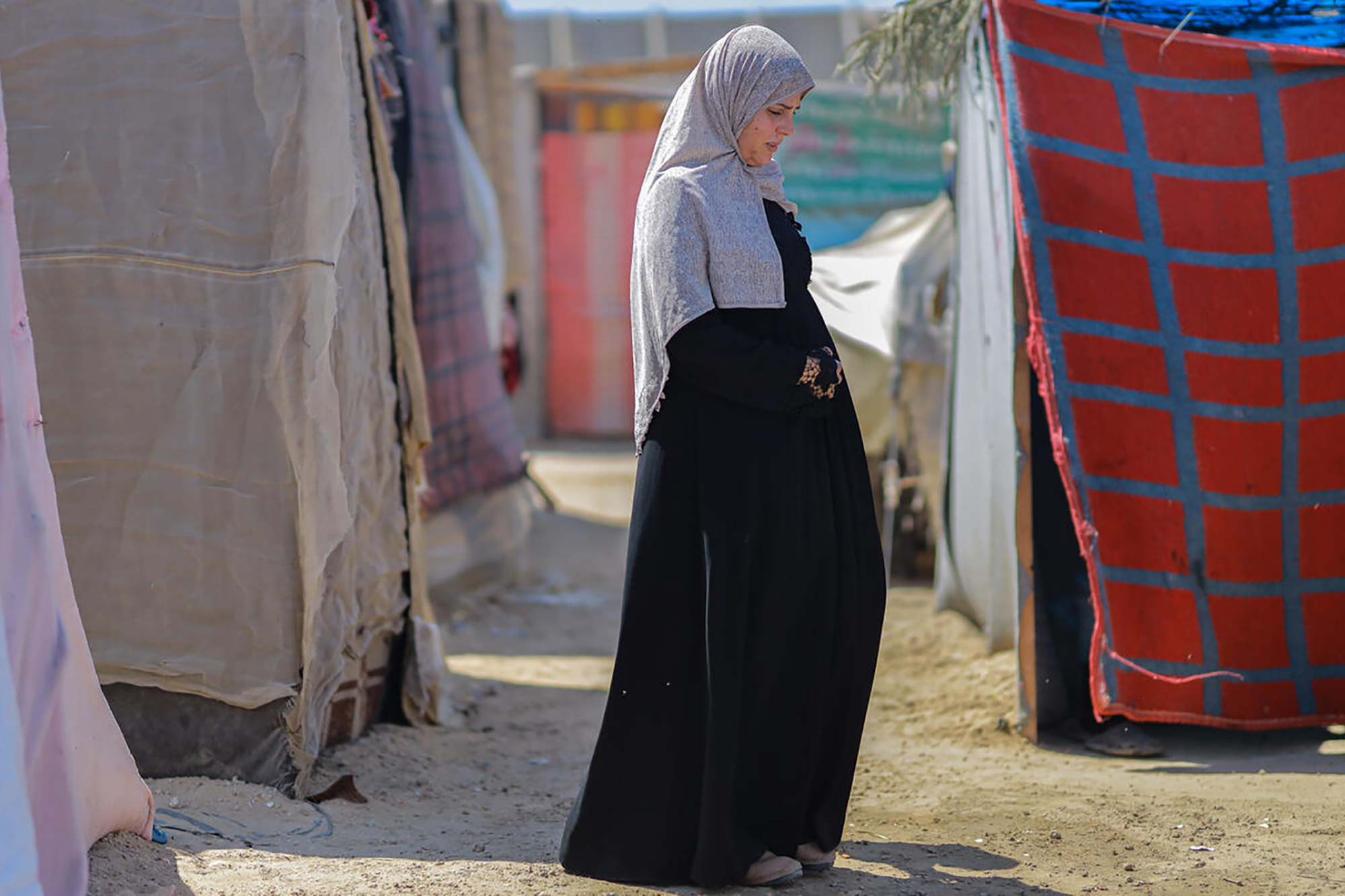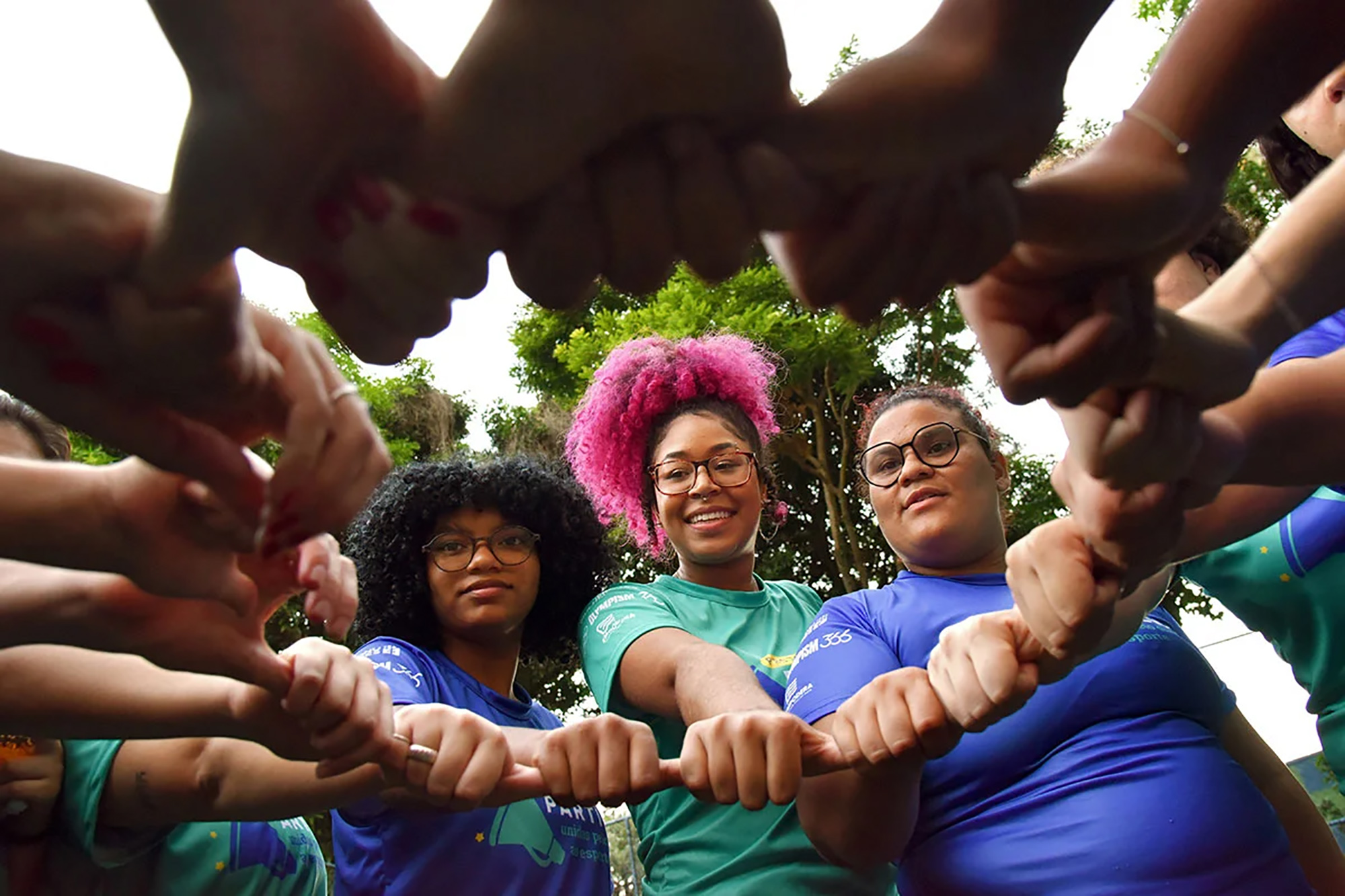In Tambiri, women like Dabiré Ngalle are leading efforts to preserve shea trees, vital for their livelihoods, amidst an escalating ecological crisis.
For thousands of women, the cycle of gender-based violence ended with one final and brutal act—their murder by partners and family members. There is #NoExcuse for violence against women and girls. The crisis of gender-based violence is urgent.
The 16 Days of Activism is an opportunity to revitalize commitments, call for accountability and action from decision-makers, as the world approaches the 30th anniversary of the Beijing Declaration and Platform for Action in 2025 – a visionary blueprint for achieving gender equality and women’s and girls’ rights everywhere.
For thousands of women, the cycle of gender-based violence ended with one final and brutal act—their murder by partners and family members. There is #NoExcuse for violence against women and girls. The crisis of gender-based violence is urgent.
The 16 Days of Activism is an opportunity to revitalize commitments, call for accountability and action from decision-makers, as the world approaches the 30th anniversary of the Beijing Declaration and Platform for Action in 2025 – a visionary blueprint for achieving gender equality and women’s and girls’ rights everywhere.
Three women: from Sudan, from Ukraine, and from the Democratic Republic of the Congo share their stories of surviving wartime rape and domestic violence to find safety and support in clinics run by the UN Population Fund (UNFPA) and partners. A staggering 70 percent of women in conflict zones are subjected to gender-based violence. Maria, a Ukrainian woman, fled her home due to the war, but was forced to return to an abusive partner, enduring further trauma. Now on the road to healing, Maria says she is profoundly grateful to the people who listened, and cared. “They simply looked me in the eyes, extended a hand and said, ‘Hold on, hold my hand, and I’ll help you.” UNFPA's efforts are critical in addressing the urgent needs of these survivors, offering healthcare, counseling, and protection services to rebuild their lives.
Violence against women and girls is the most pervasive human rights violation. In 2024, an estimated 50,000 women and girls were killed by intimate partners or family members worldwide. That is 137 women and girls every day. One every ten minutes, according to the latest data released by the United Nations Office on Drugs and Crime and UN Women.
On average, 140 women and girls are killed every day by someone in their own family. One woman every 10 minutes. Around one in three still suffers physical or sexual violence. This is unacceptable. Ending Violence against Women Day (25 November) urges robust responses, holding perpetrators accountable, accelerating action, and increasing funding to women’s rights movements. The Observance launches the Femicides report 2023 with the latest data and marks the beginning of the UNiTe Campaign 16 days of activism to draw attention to the alarming escalation of violence against women. Join us!
After undergoing a Caesarean section days before the strike, Samah fled to the Syrian border. When her car was blocked by a crater, she had to continue on foot with her children. “I wrapped my stomach with a clean cloth and carried my son and went down to the border,” she said. Luckily, Samah reached a clinic at the border where a United Nations Population Fund (UNFPA) medical team examined her and confirmed she and her newborn were healthy. “I felt hope again,” she noted, as they provided antibiotics, nutrients, and a sense of safety. Samah was among the fortunate few to receive care amid the healthcare crisis in Lebanon, Gaza, and the West Bank, where conflict has severely impacted medical services.
To effectively address the rising violence against women and girls in conflict zones, the international community must prioritize their representation, rights, and support in peace and security initiatives.
The 600 million adolescent girls in the world have infinite potential, but they need support to realize it. To mark the International Day of the Girl Child, we go behind the scenes with six young women - a dancer, an educator, a future leader, an adviser and an advocate- who are working with the United Nations Population Fund (UNFPA) to make a difference or benefiting from those initiatives, inspiring hope for us all.
Despite progress, 122 million girls remain out of school, inspiring a video for the 2024 International Day of the Girl.
A year has passed since war erupted in Gaza, causing immense suffering, especially for women and girls. More than 41,600 people have been killed, and 96,000 injured, so far, with most of those killed women and children. Palestinian women and girls from Gaza have reportedly been subjected to horrific levels of sexual violence, including while in detention. The United Nations Population Fund (UNFPA) looked back at the immense challenges faced by women and girls over the past 12 months.
Thuraya (85), Kholoud (28), and Leen (14) reflect the profound pain and resilience of women in Gaza, shaped by displacement and conflict across generations, highlighting their strength amid ongoing suffering.
The consequences of crises disproportionately affect women. Even though most combatants are male, over two-thirds of civilians killed in conflict are women and children. Women and girls also make up the majority of survivors of conflict-related sexual violence. However, male-dominated fighting forces and majority-male policymakers often lead peacebuilding processes. What role do women and young people play in promoting peace, and how does the United Nations Population Fund (UNFPA) empower them to participate?
Almost ninety percent of the population of Gaza – 1.9 million people – have been displaced at least once by evacuation orders issued by Israeli Defense Forces, searching for something that does not exist: safety. The war in Gaza has rendered pregnancy unsafe for women. Ongoing hostilities, repeated evacuation orders, a breakdown in public order and safety, and the challenges of reaching people in need are preventing an effective humanitarian response. The United Nations Population Fund (UNFPA) and partners continue to provide support despite the insurmountable circumstances, but the only way to ensure that people have access to the basics to survive is with an immediate and sustained ceasefire.












